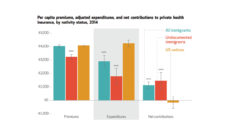The massive surge of unaccompanied minors from El Salvador, Honduras, and Guatemala is a humanitarian crisis. Beginning in October 2011, the United States government reported a dramatic rise in the number of unaccompanied children arriving from the Northern Triangle. The initial influx of 3,933 unaccompanied Central American children crossing the southwest border of the Rio Grande increased steadily to a high of 50,036 in 2018.
United States foreign policy and the ravages of civil war in the region during the 1980s have contributed to the socio-economic conditions underlying this crisis. Extreme poverty, malnutrition, sexual violence, gang violence, and family reunification are the primary reasons these children are fleeing their homes. Many of these kids are re-victimized or trafficked on their journey from Central America. Female migrants make the journey knowing they will likely be raped along the way. Unaccompanied migrant children are in desperate need of medical and mental health services when they arrive, services that are sorely lacking in most communities.
These kids are utterly traumatized when they arrive. Once apprehended at the border, they are placed in shelters for approximately three months before being reunited with family or placed in foster care. While in the shelters they have access to health and mental health services. However, once released to family members those services are no longer available and families must fend for themselves.
The pain does not go away when they are reunited with their parents who work long hours outside the home. As a result, children who have migrated on their own in search of their families, security, and stability end up feeling neglected all over again.
Navigating the morass of social services is exacerbated by language barriers, lack of transportation, and undocumented immigration status. In New York, unaccompanied minors are eligible for Child Health Plus which provides free medical care and access to a private therapist. But many immigrant families are unaware of this program. The Mid-Hudson Valley – where I conducted research on the collective response to the crisis by service providers, educators, activists, and immigration lawyers – has just one Spanish speaking therapist. In the region where I work and beyond there are few bilingual medical or counseling services.
Given the enormous trauma suffered by these youth, the lack of services is devastating. The decision to migrate with only some of your children is excruciating. Unfortunately, the kids who are left behind do not understand the pain their parents go through when making this decision or the underlying the socioeconomic reasons. They do not grasp the complexities of immigration policy or the reasons why their parents left. Many haven’t seen their parents for years and are angry about being abandoned. All they know is that they were left behind.
The pain does not go away when they are reunited with their parents who work long hours outside the home. As a result, children who have migrated on their own in search of their families, security, and stability end up feeling neglected all over again. They are relieved to be reunited, but the transition is extremely difficult and they need intensive health care and counseling. Their trauma is compounded by the racist and xenophobic public discourse from news outlets and President Trump describing their violent nature and destruction of their new communities.
These children need long-term mental health care to deal with their anger and the trauma they experienced in their home countries and on their journey. They also need medical care for malnutrition, untreated illness, and physical harm. The lack of services is unconscionable. The first step to meaningful social policy is to recognize these children and their families as human beings and not demonize them as dangerous others. In addition, communities must make access to bilingual medical and mental health care for unaccompanied minors a priority.
Feature image: akinshin/iStock














